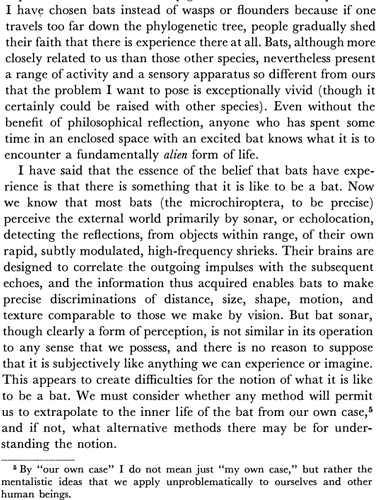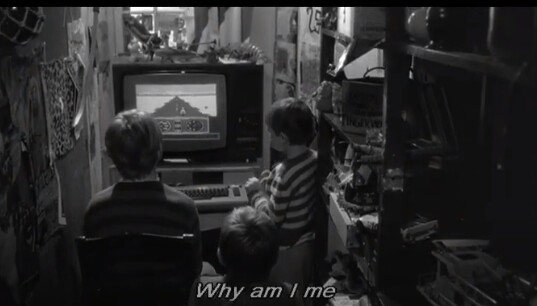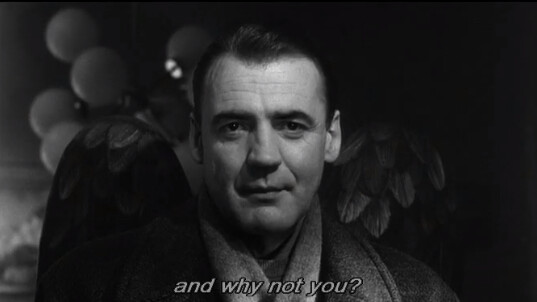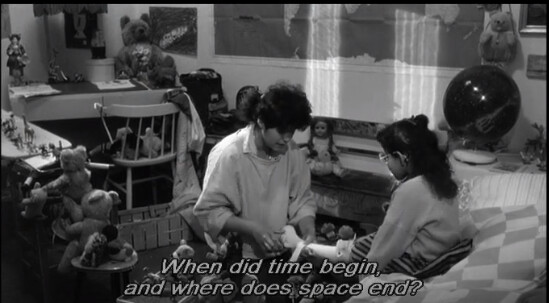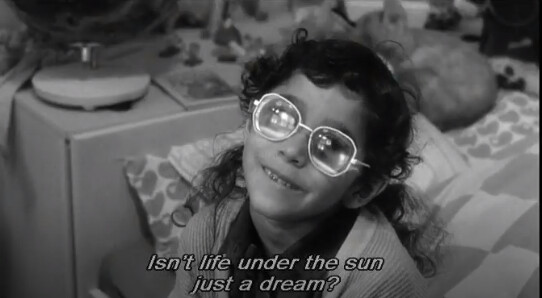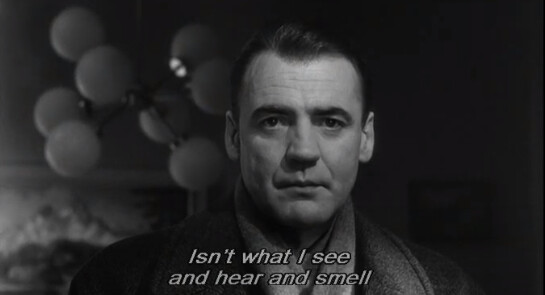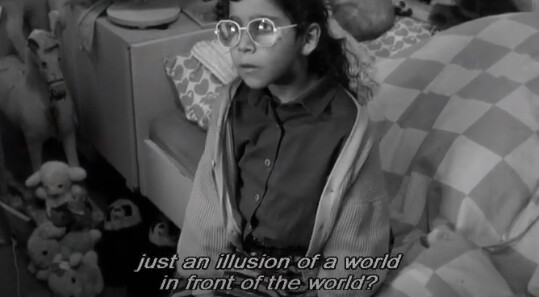Situations which require a ‘leap of faith’ can be appreciated by way of this thought experiment which I just read about in my weekly summary from the website (blog or sub stack pehaps?) known as the Marginalian:
The Vampire Problem: A Brilliant Thought Experiment Illustrating the Paradox of Transformative Experience
To be human is to suffer from a peculiar congenital blindness: On the precipice of any great change, we can see with terrifying clarity the familiar firm footing we stand to lose, but we fill the abyss of the unfamiliar before us with dread at the potential loss rather than jubilation over the potential gain of gladnesses and gratifications we fail to envision because we haven’t yet experienced them. Emerson knew this when he contemplated our resistance to change and the key to true personal growth: “People wish to be settled; only as far as they are unsettled is there any hope for them.” Rilke, too, knew it when he considered how great upheavals bring us closer to ourselves: “That is at bottom the only courage that is demanded of us: to have courage for the most strange, the most singular and the most inexplicable that we may encounter.”
When faced with the most transformative experiences, we are ill-equipped to even begin to imagine the nature and magnitude of the transformation — but we must again and again challenge ourselves to transcend this elemental failure of the imagination if we are to reap the rewards of any transformative experience.
In Transformative Experience (public library), philosopher L.A. Paulillustrates this paradox and examines how we are to unbind ourselves from it in a simple, elegant thought experiment: If you were offered the chance to become a vampire — painlessly and without inflicting pain on others, gaining incredible superpowers in exchange for relinquishing your human existence, with all your friends having made the leap and loving it — would you do it?
Art by Edward Gorey from his special illustrated edition of Dracula
Paul writes:
The trouble is, in this situation, how could you possibly make an informed choice? For, after all, you cannot know what it is like to be a vampire until you are one. And if you can’t know what it’s like to be a vampire without becoming one, you can’t compare the character of the lived experience of what it is like to be you, right now, a mere human, to the character of the lived experience of what it would be like to be a vampire. This means that, if you want to make this choice by considering what you want your lived experience to be like in the future, you can’t do it rationally. At least, you can’t do it by weighing the competing options concerning what it would be like and choosing on this basis. And it seems awfully suspect to rely solely on the testimony of your vampire friends to make your choice, because, after all, they aren’t human any more, so their preferences are the ones vampires have, not the ones humans have.
This hypothetical situation, she points out, is an apt analogue for our most important life decisions:
When you find yourself facing a decision involving a new experience that is unlike any other experience you’ve had before, you can find yourself in a special sort of epistemic situation. In this sort of situation, you know very little about your possible future, in the same way that you are limited when you face a possible future as a vampire. And so, if you want to make the decision by thinking about what your lived experience would be like if you decided to undergo the experience, you have a problem… You find yourself facing a decision where you lack the information you need to make the decision the way you naturally want to make it — by assessing what the different possibilities would be like and choosing between them. The problem is pressing, because many of life’s big personal decisions are like this: they involve the choice to undergo a dramatically new experience that will change your life in important ways, and an essential part of your deliberation concerns what your future life will be like if you decide to undergo the change. But as it turns out, like the choice to become a vampire, many of these big decisions involve choices to have experiences that teach us things we cannot know about from any other source but the experience itself.
It probably isn’t too hard to see how this describes the experience of someone who acquires belief after having settled into a life without it. What might be more challenging is to see how those who only believe what they do based on the authority of their parents, a community or the Bible scoff at the possibility to know God directly without the foreknowledge which has been granted to them. From the POV of someone who comes to belief only through consideration of their own direct experience it seems that the tradition bound believer is missing out on a transformative experience too.



